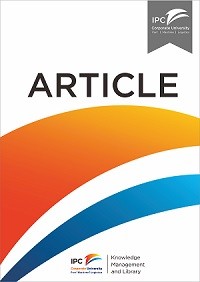Article
Do undesirable output and environmental regulation matter in energy efficiency analysis? Evidence from Indian Cement Industry
abstract
Energy use in the production of desirable output often results in the generation of undesirable emission with detrimental impact on the environment, and whose disposal is frequently monitored by public authorities. Previous studies, however, paid little attention to undesirable output and environmental regulation related to its disposal while estimating energy use efficiency. Analysis of energy efficiency ignoring undesirable output could result in biased estimates of efficiency. Thus the aim of this paper is to estimate energy use efficiency in the presence of energy related undesirable emission by taking Indian cement industry as a suitable context of my analysis. Depending on the presence and absence of undesirable output and environmental regulation, three measures of efficiency have been estimated at the state level from 2000–01 to 2004–05 by applying Data Envelopment Analysis. Energy efficiency is defined as the ability of the producer to reduce the energy input to the largest extent possible, conditional on the given level of output and non-energy inputs. Empirical results reveal that energy efficiency estimates are biased if only desirable output is considered. Results also demonstrate that environmental regulation has a reinforcing effect on energy use efficiency.
Ketersediaan
Informasi Detail
- Judul Seri
-
Do undesirable output and environmental regulation matter in energy efficiency analysis? Evidence from Indian Cement Industry
- No. Panggil
-
ATC PO SAB a
- Penerbit
- India : Elsevier., 2010
- Deskripsi Fisik
-
8 halaman
- Bahasa
-
English
- ISBN/ISSN
-
-
- Klasifikasi
-
ATC
- Tipe Isi
-
-
- Tipe Media
-
-
- Tipe Pembawa
-
online resource
- Edisi
-
Energy Policy
- Subjek
- Info Detail Spesifik
-
8 halaman
- Pernyataan Tanggungjawab
-
Sabuj Kumar Manda
Versi lain/terkait
Lampiran Berkas
Komentar
Anda harus masuk sebelum memberikan komentar

 Karya Umum
Karya Umum  Filsafat
Filsafat  Agama
Agama  Ilmu-ilmu Sosial
Ilmu-ilmu Sosial  Bahasa
Bahasa  Ilmu-ilmu Murni
Ilmu-ilmu Murni  Ilmu-ilmu Terapan
Ilmu-ilmu Terapan  Kesenian, Hiburan, dan Olahraga
Kesenian, Hiburan, dan Olahraga  Kesusastraan
Kesusastraan  Geografi dan Sejarah
Geografi dan Sejarah